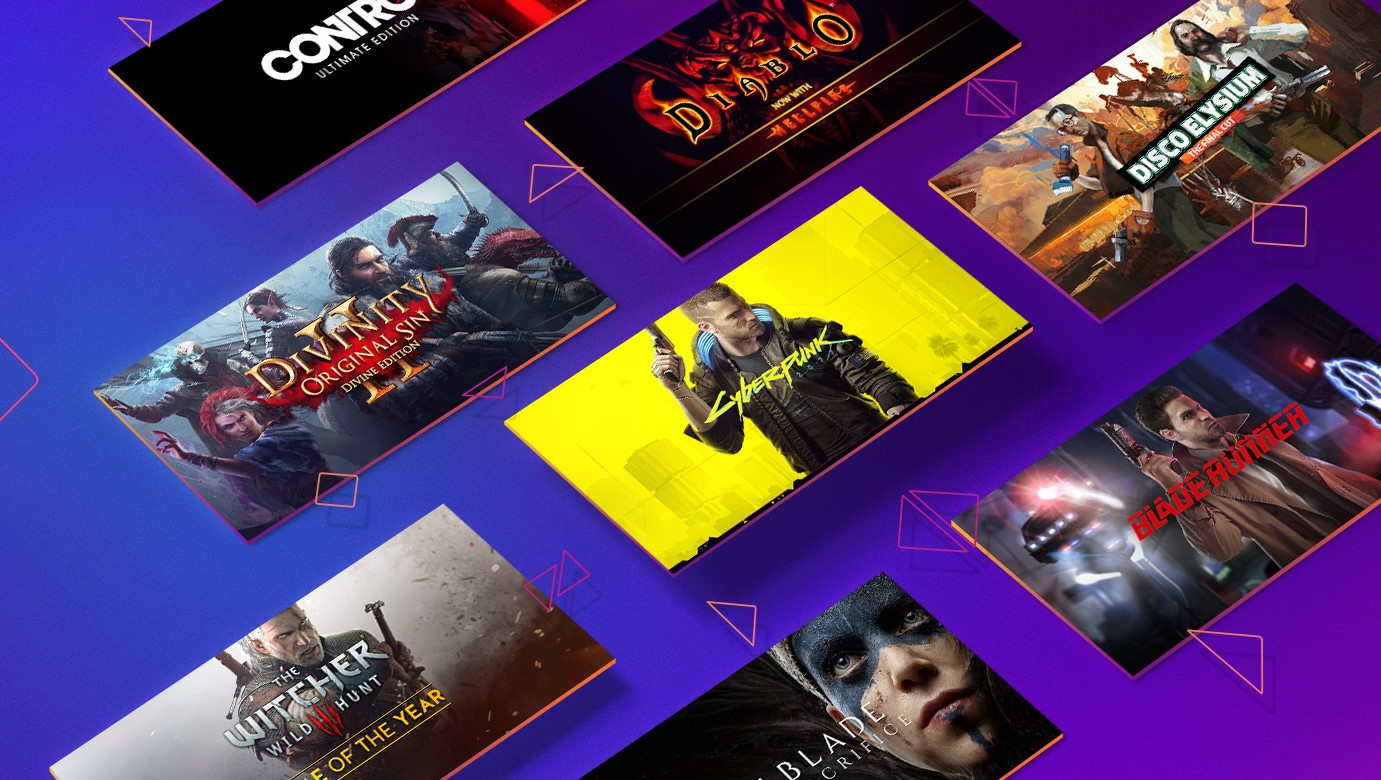GOG recommits to 'DRM-free philosophy' as it struggles to stop bleeding money
CD Projekt says GOG will refocus on its "core business" of selling curated, DRM-free games.

An interesting detail revealed in CD Projekt's most recent financial report is that while the company overall continues to make a lot of money, it's digital storefront GOG is losing it. GOG posted a loss of 4.8 million PLN ($1.15 million) in the third quarter of 2021 and 9.2 million PLN ($2.2 million) over the first nine months of the year. And with competition from Steam and Epic growing more intense, CD Projekt has decided that it's time to make some changes.
"Regarding GOG—its performance does present a challenge and recently we've taken measures to improve its financial standing," CD Projekt chief financial officer Piotr Nielubowicz said in an investors call (transcript). "First and foremost, we've decided that GOG should focus more on its core business activity—which means offering a handpicked selection of games with its unique DRM-free philosophy."
It's interesting to see CD Projekt opting for a "return to its roots" approach to changing GOG's course. The storefront launched in 2008 as Good Old Games, a niche platform focused on retro PC games and no digital rights management: Unlike Steam, GOG users could simply download full games to their PC and do whatever they wanted with them, without requiring an external launcher or internet connection. But its greater ambitions were made clear with the release of GOG Galaxy, an optional launcher released in 2015 (the vastly updated GOG Galaxy 2.0 launched in 2019 and is in "open beta"), and an increased focus on new game releases.
Not all GOG fans were thrilled with that shifting focus, however, and their discontent came to a head in September when Hitman Game of the Year edition arrived on the storefront. Despite being a huge hit and deeply discounted, it was viciously review-bombed because of its online requirements, which many felt violated GOG's "no DRM" pledge. The backlash was strong enough that GOG removed the game from sale and apologized for releasing it.
GOG has always been the (very) little brother to Steam. In its inception, it carved out a unique niche: making old games run on current systems and releasing them cheaply and without copy protection. Now, though, it looks like it's being squeezed between the behemoth of Steam and the weekly free games and growing number of exclusives on the Epic Store—no longer the scrappy alternative, but just another store struggling for foot traffic.
The financial losses incurred by GOG sound primarily structural, which explains the internal changes—by pulling out of the Gwent consortium, for instance, GOG will no longer be responsible for expenses incurred by the service (and also won't get its portion of the revenues, but apparently that doesn't justify the expense). The same is presumably true for the CD Projekt online services that are being moved to CD Projekt Red: The external support operations being provided by GOG are causing losses, and so they're being cut.
Nielubowicz clarified later in the presentation that the changes will be mainly behind-the-scenes and "should not have any direct influence on GOG sales" of games by either CD Projekt or external studios. But the promise of increased curation and re-commitment to absolutely, positively no DRM is a consumer-focused commitment—practically a plea to its existing fanbase—and that's bound to have an impact on what ends up on its storefront in the future. Which is probably what GOG needs if it wants to end up as more than just a boutique platform for CD Projekt's own games. I've reached out to GOG for more information on its plans for the future and will update if I receive a reply.
The biggest gaming news, reviews and hardware deals
Keep up to date with the most important stories and the best deals, as picked by the PC Gamer team.

Andy has been gaming on PCs from the very beginning, starting as a youngster with text adventures and primitive action games on a cassette-based TRS80. From there he graduated to the glory days of Sierra Online adventures and Microprose sims, ran a local BBS, learned how to build PCs, and developed a longstanding love of RPGs, immersive sims, and shooters. He began writing videogame news in 2007 for The Escapist and somehow managed to avoid getting fired until 2014, when he joined the storied ranks of PC Gamer. He covers all aspects of the industry, from new game announcements and patch notes to legal disputes, Twitch beefs, esports, and Henry Cavill. Lots of Henry Cavill.

